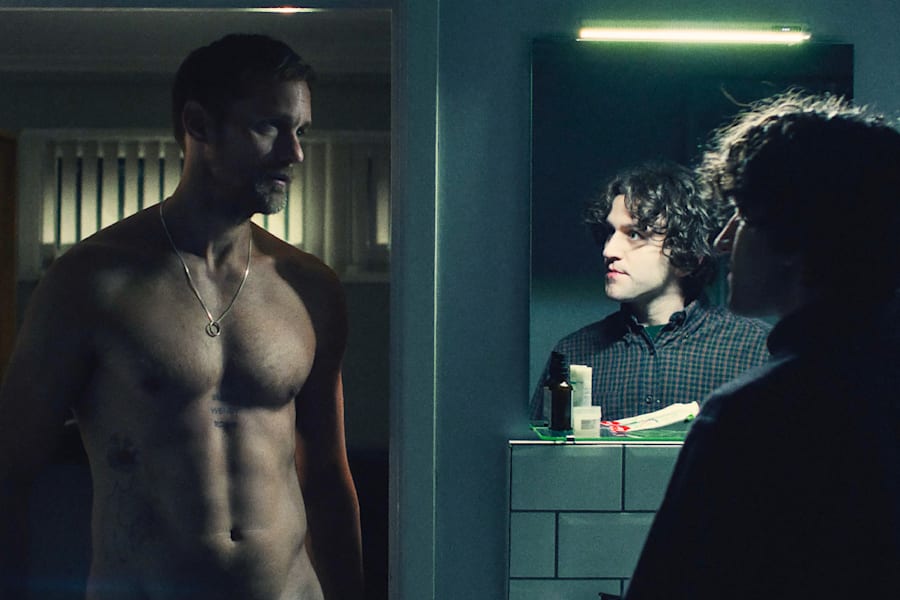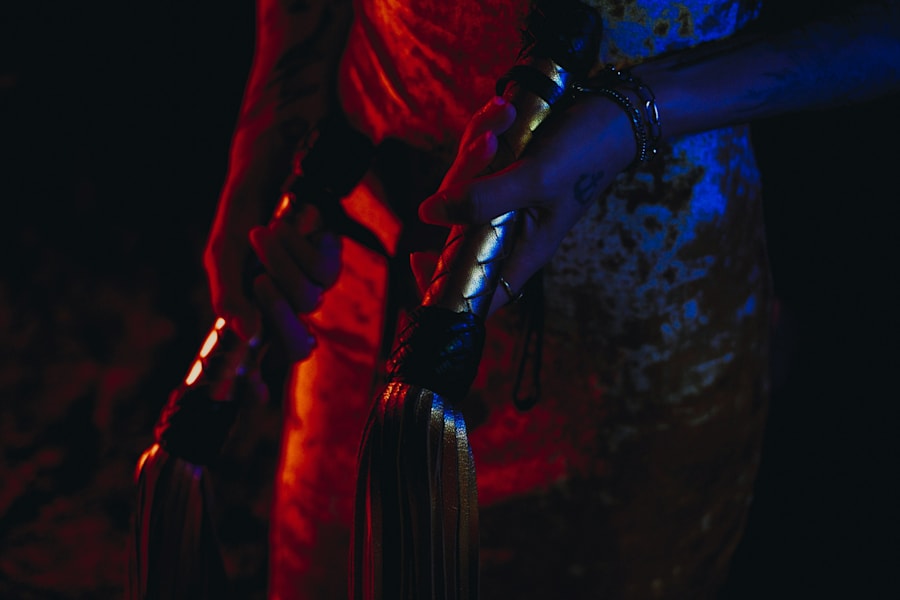The talking stage: What it is and how to navigate it

Curious about the “talking stage”? Let’s break it down. Originally, this term was tied to online dating, simply marking the time spent chatting with someone virtually before deciding whether or not to meet up. These days, though, Gen Z has expanded the meaning to cover the entire period from the first message sent to that all-important conversation where you define your relationship.
The talking stage can mean different things to different people. For some, it’s a no-strings, no-pressure way to feel things out with someone new; for others, it’s an exciting prelude to a deeper connection. While the intent might vary, the talking stage serves as a space to explore mutual feelings, shared interests, and compatibility—all without the immediate weight of commitment.
And while this stage can be thrilling and full of “what if” energy, it’s also notorious for mixed signals, ghosting, and “situationships” that never quite lead to clarity. Still, knowing how to handle it can make all the difference. Whether you’re someone who loves the chase or prefers to get to the point, there are ways to navigate the talking stage to stay grounded and avoid unnecessary heartbreak.
So, how do you make the most of it? Read on for tips on how to navigate the talking stage, recognizing red flags, setting boundaries, and figuring out when it’s time to have the talk—or walk away.
What is the talking stage?
It’s a question many have wondered. In fact, Google Trends’ searches involving the phrase just talking began in September 2008 and continued to rise until January 2016, where it has remained a consistently prevalent search term (the highest prevalence so far was in February 2024).
Think of it as somewhere between getting to know someone and “casual dating.” It’s messaging and hanging out without any pressure or labels. This period of time is all about exploring whether there’s a real connection—without rushing into anything serious or hurting anyone’s feelings if it doesn’t click.
Traditionally, dating was more formulaic. You chatted for a bit, you met up for dates, knowing immediately if you vibed or not, and if you did, there was an expectation of it going somewhere. The talking stage is designed to eliminate those strings of terrible first dates, getting ghosted or the dreaded “I’m just too busy for anything serious right now.”
This new casual way of approaching things has evolved with the technology and the ability to talk to anyone at any time. You can spend more time getting to know someone by Facetiming them or just messaging them, which is often a more intimate way of communication. There are also a lot more options out there. We are no longer confined to our local pubs, clubs, or even work to meet a significant other. With a dating app you can filter exactly what you want, and if that initial chat isn’t working out, you can just swipe away and on to the next.
Is the talking stage considered dating?
The talking stage should be a positive and exciting experience. It’s the getting to know you stage of something brand new. Getting a feel for a person through messaging and those first few dates doesn’t have to be committed. If you dislike something about them when you first meet, it’s ok to end things right here, you just weren’t feeling each other. Or you might really like each other and be excited to carry things on.
If this sounds like how you normally date, then you aren’t alone! There are no hard and fast rules about how we should be defining how we do things, terms like “dating” and “talking stage” are just that, terms, and if you don’t see a huge distinction then great. But how we communicate our intentions and determine our boundaries is changing, which is a much healthier approach to dating in general, and this is partly why it might be a good idea to identify what stage you are in.
So, what’s the difference?
For some people, the talking stage is literally just that, talking. For others, it’s more like dating without saying that you’re dating. Interestingly, in a study by Google of over 300 18–24-year-olds, more than 20% said that a texting conversation can count as a date. And more than half flagged the importance of video and virtual dating in their lives.
In theory, the talking stage is a more relaxed approach to dating. Without the added pressure of defining things, you can take things at your own pace. It’s ok to talk to several people, consider your options without being tied down to just dating a person. This can open the door to a more ethically non-monogamous way of approaching relationships, where you’re free to build connections with different people at once—especially in the early stages. In both situations you may go out on dates, you might have sex, you might “catch feelings” but the key difference is that “officially” dating usually comes with some sort of intention to do more than just get to know each other, without actually making a full commitment.
Moving into an official relationship after dating is when a proper conversation needs to happen. Sometimes this happens naturally or you discuss how you’d like to make things more exclusive or serious and see where things go. This is now your future and your expectations from each other should be crystal clear. That could be things like monogamy, how you choose to spend your time together, meeting family and friends, even where you want to live.
Talking stage vs situationship
If you find yourself spending more and more time with each other, without the commitment you think the relationship deserves then you are probably in a situationship. No one has to label any sort of relationship, but boundaries and the type of commitment you want (and deserve) are very reasonable things to ask for. Are you moving towards something more serious, or are you just messaging when you are bored and want to fuck?
If you’re unsure where things stand, remember: communication is key. Being open and honest can feel vulnerable, but if you’re looking for something serious and they’re not on the same page, it’s better to know sooner rather than letting things drag on. After all, wouldn’t you rather invest your time and energy into someone who’s looking for the same things you are?
Rules of the talking stage
However you are spending the talking stage, from just messaging or meeting up, it’s important to keep a few things in mind. Be clear in what your expectations are from this person and vice versa. To avoid getting super disappointed in the lack of a “good morning gorgeous x” message from your new crush, establish early on what style of communication you prefer. It’s completely acceptable to ask outright if your match likes messages throughout the day or if it’s an evening only kind of thing, and what your preferences are. If you are left wondering why you’ve been left on read all day, your trust in this person has plummeted before you’ve even started.
When you do find who you think might be a great match on an app, it’s very easy to fall into the trap of talking for hours over messages and voice notes before meeting. But if you plan to take things offline, you might want to hold some things back. You don’t have to send your best nudes straight away, or tell them your entire life story before you’ve met. If it doesn’t work out then you’ve spent a lot of time and energy on someone who wasn’t right. It can get formulaic after a while, going through your likes, family history, sending the same nudes to different people, which is exhausting. It will also lead to better first dates and hangouts if you have more things to talk about and share. That said, if your connection is primarily digital or digital-first, it’s perfectly fine to explore intimacy and build connections in this space. For some, the online experience itself can be fulfilling, and you might not be looking to move things to in person just yet. In those cases, embracing digital intimacy fully can lead to richer experiences and more genuine connections.
Talking stage red flags
There are a few red flags to watch for in the talking stage, and a bunch of research into why you should proceed with caution. Catfishing is a pretty obvious one. If someone you are talking to seems shady or too good to be true, you might want to listen to your gut instinct. If they only talk at certain times of day, can’t keep their story straight, have no photos, or are sending exclusively highly-edited selfies, they might not be who they say they are.
Another red flag is when someone is non-committal about actually meeting up. If your conversations always turn to sexting or no concrete plans are ever made, they might be looking for digital intimacy without any intention of meeting in person. However, it's important to note that some people may choose to limit themselves to digital connections, and there's nothing inherently wrong with that as long as it's communicated honestly from the start. If they’re avoiding making firm plans or dodging the question when you ask directly, they may not be looking for anything beyond the digital space. Or they’re just not that into you.
It’s worth saying that communication is key. Any red flags that apply to dating likely apply too to the talking stage. However low-key the vibes might be, you’re still investing your time and sharing personal details with someone. If in doubt, consider without.
What comes after the talking stage?
We’ve established that the talking stage is a more casual way of approaching dating, if things don’t work out, it should be that bit much easier to end things. That doesn’t mean you should ignore or ghost the person, you can just explain that you aren’t feeling that romantic connection and it’s probably time to move on. Maybe you remain friends. Maybe you don’t. Sometimes things just fizzle out, and that’s ok.
When does talking become dating?
Curious about how long the talking stage should last? If you feel like things are clicking and you both seem to be enjoying your conversations, it might be time to have that chat about taking things to the next level. You can gauge this by considering how much time you’ve spent together, how often you message each other, and whether you’ve hung out with friends.
When you’re ready, just be honest about your feelings. Let them know you like them and want to explore a more serious relationship. You don’t necessarily need to label it, but having an open conversation about your intentions can help avoid any confusion or upset down the line.
It’s important to remember that terms like "talking stage," "situationships," and "are we just dating?" are just a part of modern dating. These concepts aren’t new; what’s changed is how we navigate them and communicate what we do or don’t want. The talking stage can mean different things for different people—maybe you’re exploring options, taking things slow, or just getting to know someone better before making things official.
Navigating the talking stage can be tricky, but it’s all about being open and honest. Sometimes, just talking can be a fun and flirty experience that boosts your confidence when you need it most. But if you’re looking for more then it all starts with a conversation. By staying aware of potential red flags and clearly communicating your feelings, you can create a solid foundation for a deeper connection.
And if you’re eager to meet someone new but haven’t found the right person yet, why not download the Feeld app? It’s a welcoming space to start fresh conversations and explore new connections. You never know where things might lead!


